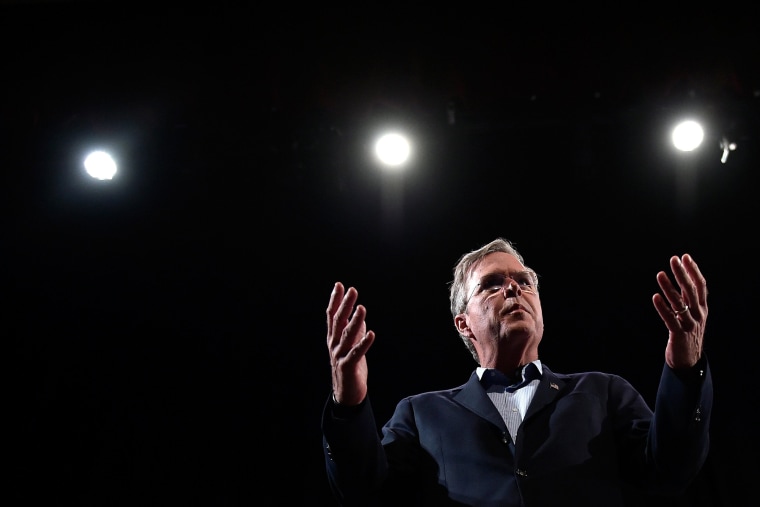Jeb Bush sat down yesterday with ABC's Jonathan Karl, who asked the former governor if he might drop out before the Iowa caucuses on Feb. There's "no way" that could happen, the Republican candidate replied.
And while Bush's answer is probably true, the fact that the question came up at all had to be discouraging. Strong, competitive presidential hopefuls simply aren't asked about their willingness to quit and the timelines of their possible departures.
But the Florida Republican is nevertheless putting on a brave face. In fact, MSNBC's Kasie Hunt reported from New Hampshire today that part of Jeb Bush's reboot evidently includes bold optimism about his prospects.
“I’m going to win New Hampshire, I just feel it,” Bush told donors on a conference call Wednesday, phoning in from his campaign bus in between stops in the Granite State. “I know in my heart that we’re on the right track,” he added, according to an audio recording of the call obtained by NBC News.
Bush used identical language in a WMUR radio interview yesterday. “I’m going to win it," he said in reference to the New Hampshire primary. He added, "I honestly believe I’m going to win New Hampshire."
There's reason to be skeptical about his prediction. Bush looked strong in the Granite State in the spring, but his support has steadily declined ever since. Recent polling shows Jeb with about 7% backing in New Hampshire, far from top-tier contenders like Donald Trump and Ben Carson. His "feelings" notwithstanding, he has a long way to go to make up the ground he's lost, and no obvious plan to rebuild his support.
But even putting that aside, so much of campaign politics is an expectations game, and saying things like, “I’m going to win New Hampshire" is incredibly -- and unnecessarily -- risky.
Just from a tactical perspective, there's no upside to Bush saying something like this. In the unlikely event that he wins the primary, Bush will benefit from an amazing come-from-behind victory. If he loses the primary, predictions like these will suggest his campaign is effectively finished.
And if Bush manages to get his campaign back on track, build an improved base of support, and somehow finish a strong second or third in the state, it won't be nearly as impressive -- because he'll be on record predicting a victory.
The trick for someone in Bush's shoes is lowering expectations. Why in the world is he doing the opposite?
